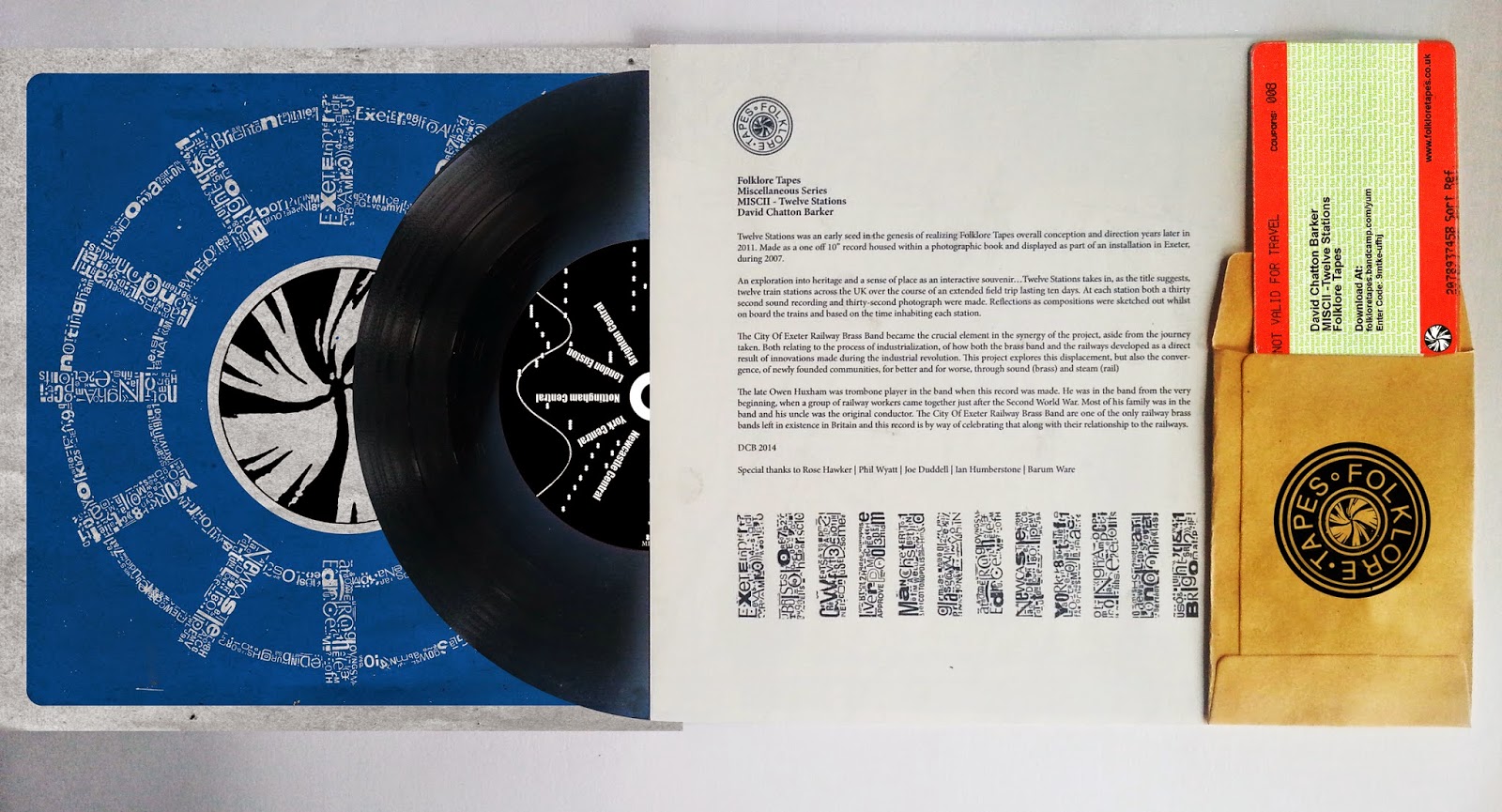The Twelve Stations project started in Exeter in 2007. Originally it was intended as a one off event, featuring a one of a kind 10” record housed within a photographic book and displayed as part of a larger installation. Since then, however, the recording has taken on a life of its own, serving as the inspiration for the founding in 2011 of the Folklore Tapes.
As the title suggests, twelve train stations across the UK were visited in ten days as part of an extended field trip. At each station both a thirty second sound recording and a thirty second photograph were taken. Compositions were sketched out during each train journey, influenced in turn by the things observed and overheard whilst visiting each station. These scores were later recorded with The City Of Exeter Railway Brass Band in an evening during their weekly rehearsals.
The project was an attempt to investigate an aspect of day to day existence that is characterised by a sense of transience. It was hoped that the fleeting nature of this experience, the sad, perpetual motion of strangers passing us by, might be reflected in the twelve vignettes that make up these recordings; each piece lasts no longer than forty seconds, the sounds never fully resolving themselves, thereby hinting at unrealised possibilities.
The City of Exeter Railway Brass Band would itself become a crucial element in the unfolding of this project: both the brass band and the railway system developed as a result of the technological innovations forged during the industrial revolution. Thus, Twelve Stations was a chance to explore further this strange harmonic convergence of brass and breath, iron and steam.
Although the creation of Twelve Stations was largely as a result of chance occurences and fleeting sensory perceptions, earlier echoes may be heard in the recordings of Basil Kirchin, with his aural portraits of places and people (as well as his various library music releases), minimalist works such as Philip Glass’ score for ‘Koyaanisqatsi’ and Steve Reich’s ‘Different Trains’, and in the sense of loss that permeates William Basinki’s ‘Disintegration Loops’ and ‘The Sinking of the Titanic’ by Gavin Bryars.
The late Owen Huxham was the trombone player in The City Of Exeter Railway Brass Band when Twelve Stations was recorded. He had been with them from the very beginning, when a group of railway workers came together just after the Second World War. Most of his family has played in the band- indeed, his uncle was the original conductor. They are one of the few remaining railway brass bands in Britain and this record is a way of celebrating them as well as their long-lasting, ongoing connections with the railways.
---
Re-mastered and presented here for the first time as a seven inch record, housed in screen printed die cut sleeve with 8 page booklet and ‘train ticket’ download card in a limited run of 200 editions hand stamped and numbered by the artist.
Twelve Stations marks the first official vinyl release for the Folklore Tapes project, tracing its origins to the present day in preparation for more expansive vinyl editions soon to follow.

No comments:
Post a Comment